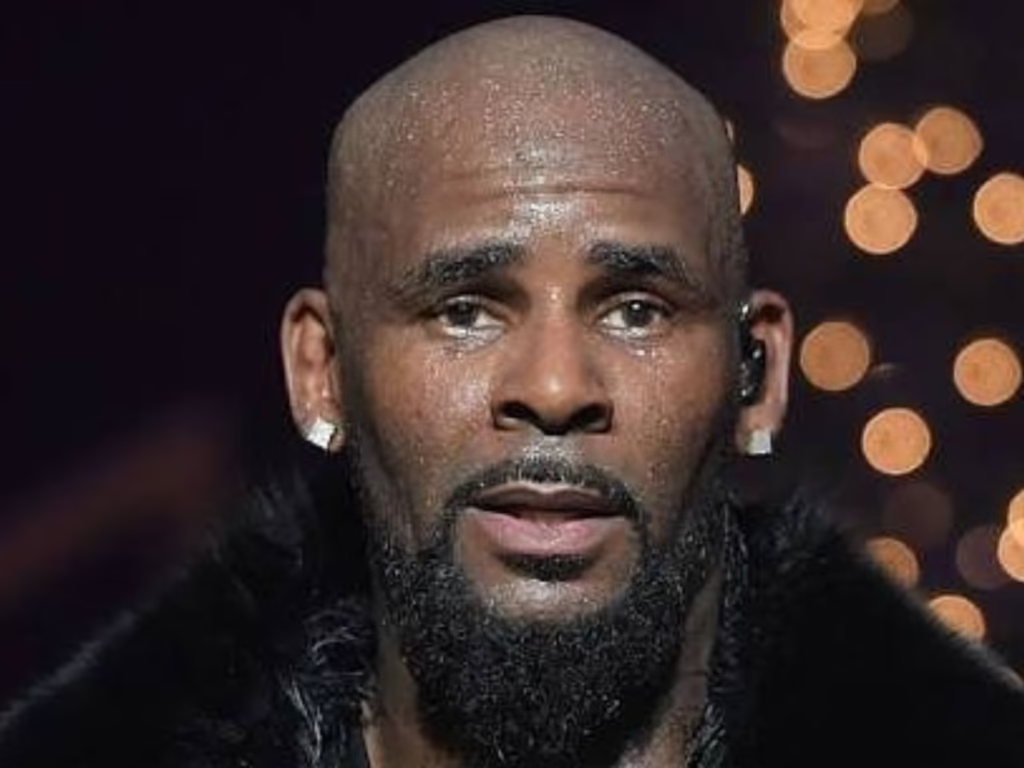
Once a towering figure in R&B, R. Kelly’s journey from Chicago’s streets to global stardom was a testament to raw talent and relentless ambition. With hits like “I Believe I Can Fly” and “Bump N’ Grind,” he redefined the genre, selling over 75 million records and amassing a fortune estimated at $100 million at its peak. His soulful voice and provocative songwriting earned him the title “King of R&B,” but by 2025, R. Kelly’s net worth had plummeted to a shocking negative $2 million, marking a dramatic fall from grace.
We delve into the meteoric rise and catastrophic collapse of a music icon, exploring how his undeniable talent was eclipsed by decades of criminal conduct and financial mismanagement. From legal battles that drained his wealth to a 31-year prison sentence for heinous crimes, Kelly’s story is a cautionary tale of fame’s fragility. Weaving together contemporary facts, including his 2025 financial status and ongoing legal repercussions, this post examines the controversies, economic troubles, and music career that defined R. Kelly’s legacy, revealing how a once-celebrated artist became a symbol of squandered potential.
The Rise of R. Kelly: A Music Industry Titan
Born Robert Sylvester Kelly on January 8, 1967, in Chicago’s South Side, R. Kelly’s early life was marked by hardship. Growing up in the Hyde Park neighborhood, he faced poverty and trauma, including alleged abuse that would later shape the controversies surrounding his personal life. Despite these challenges, Kelly’s musical talent shone through. He began performing in Chicago’s subway stations, busking under the “L” tracks, and eventually won a $100,000 prize on the televised talent show Big Break at age 22. This victory led to a contract with Jive Records in 1991, launching his professional music career.
Kelly’s debut album with his group Public Announcement, Born Into the 90’s (1992), laid the foundation for his solo success. His 1993 album 12 Play, featuring the chart-topping single “Bump N’ Grind,” catapulted him to fame, selling over six million copies.
The 1995 self-titled album R. Kelly sold four million copies, and his iconic single “I Believe I Can Fly” (1996) won three Grammy Awards, cementing his status as an R&B legend. Over the years, Kelly released 18 studio albums, including hits like Chocolate Factory (2003) and TP-2.com (2000), and collaborated with artists like Michael Jackson, Celine Dion, and Jay-Z. His catalog, which sold over 75 million records worldwide, made him one of the best-selling R&B artists of the 1990s. At his peak, his net worth was estimated between $50 million and $150 million, driven by album sales, tours, and songwriting royalties.
Kelly’s influence extended beyond his own music. As a producer and songwriter, he crafted hits like Michael Jackson’s “You Are Not Alone,” which debuted at number one on the Billboard Hot 100, and Celine Dion’s “I’m Your Angel.” His innovative “hip-hopera” Trapped in the Closet showcased his creative versatility. By the early 2000s, Kelly was a cultural force, filling stadiums and earning millions annually. However, beneath the surface, controversies were brewing that would unravel his empire.
The Seeds of Controversy: Legal Issues Begin
R. Kelly’s legal issues began casting shadows over his career as early as the 1990s. In 1994, he secretly married 15-year-old singer Aaliyah, his protégé, when he was 27. The marriage was annulled in 1995, but the incident raised questions about his relationships with minors. In 1996, teenager Tiffany Hawkins sued Kelly for inappropriate sexual conduct, settling out of court for $250,000. These early allegations hinted at a pattern of behavior that would later dominate headlines.
In 2002, Kelly faced his first major legal battle when a video allegedly showing him engaging in sexual acts with an underage girl surfaced. Charged with 21 counts of child pornography, he was acquitted in 2008 after a controversial trial. Despite the acquittal, the allegations damaged his reputation, leading to lost endorsement deals and diminished touring opportunities.
The #MuteRKelly movement gained traction, further eroding his public support. By 2019, the documentary Surviving R. Kelly brought renewed scrutiny, detailing decades of alleged sexual misconduct and abuse. This led to RCA/Sony terminating his contract and streaming platforms like Spotify and Apple removing his music, severely impacting his income.
Financial Troubles Mount
R. Kelly’s financial troubles were exacerbated by his legal battles and lavish lifestyle. At his peak, he commanded advances of over $5 million per album and earned millions from tours and royalties. However, his spending was reckless—luxury homes, extravagant parties, and a large entourage drained his wealth. By 2011, financial cracks were evident. JPMorgan Chase foreclosed on his Chicago mansion, once valued at $5 million, which sold for just $950,000. In 2018, he was evicted from two Atlanta homes for owing $31,000 in unpaid rent.
Kelly’s tax issues further compounded his woes. In 2020, he revealed to a judge that he owed nearly $1.9 million to the IRS alone, with historical tax debts totaling $4.8 million. Legal fees from multiple lawsuits, settlements with accusers, and unpaid child support to his ex-wife Andrea Lee (whom he divorced in 2009) added to his financial burden. By 2019, his attorney described his finances as “a mess,” noting that Kelly was cash-poor and unable to pay a $100,000 bail payment without external help.
As of 2025, R. Kelly’s net worth is estimated at negative $2 million. His once-lucrative music catalog generates minimal royalties, as most platforms have removed his work. Court-ordered restitution, legal fees, and creditor claims consume any residual income. Banking records from 2025 show less than $13,000 in accessible funds, with most assets liquidated or seized.
The Prison Sentence and Career Collapse
In 2019, R. Kelly’s legal issues escalated with his arrest on federal charges of racketeering, sex trafficking, and child pornography. A 2021 trial in Brooklyn resulted in a conviction on all nine counts, including violations of the Mann Act for coercing women and girls into illegal sexual activity. On June 29, 2022, Judge Ann Donnelly sentenced him to 30 years in prison, describing him as a “serial predator” who used his fame to exploit vulnerable individuals.
A second trial in 2022 found him guilty of sexually abusing his 14-year-old goddaughter and other minors, adding a 20-year sentence (to be served concurrently). As of 2025, Kelly is serving a 31-year combined sentence at FCI Butner Medium I in North Carolina, with a federal appeals court upholding his conviction in February 2025.
The prison sentence effectively ended Kelly’s music career. RCA/Sony froze his future releases, and his ability to tour or produce new music is nonexistent. While some fans argue he is still owed residuals from his catalog, including hits like “I Believe I Can Fly” and Michael Jackson’s “You Are Not Alone,” most earnings are redirected to fulfill court-mandated obligations. A post on X in June 2025 claimed Kelly generated over $1.1 billion in career earnings, but this figure is unverified and does not account for his debts.
The Impact of Controversies on Legacy
R. Kelly’s controversies have overshadowed his musical achievements. Once celebrated for his gospel-like vocals and innovative R&B style, he is now a polarizing figure. The Surviving R. Kelly documentary, which resurfaced in 2025 on UK television, continues to shape public perception, detailing allegations of abuse, captivity, and a “sex cult.” His three children with Andrea Lee—Joann, Jay, and Robert Jr.—have distanced themselves from him, and his personal life remains a subject of scrutiny.
Despite his fall, Kelly’s musical legacy persists in some circles. His songs remain popular among certain fans, and his publishing rights still generate modest income. However, protests and boycotts limit his ability to profit from his catalog, and his financial troubles ensure that any earnings are quickly absorbed by debts.
Lessons from R. Kelly’s Downfall
R. Kelly’s story is a cautionary tale of how talent and fame can be undone by criminal conduct and financial mismanagement. His net worth of negative $2 million in 2025 reflects the consequences of decades of legal issues, from unpaid taxes to multimillion-dollar settlements. His prison sentence ensures no immediate financial recovery, and his controversies have tarnished his once-stellar music career. As entertainment finance analyst Terrence Williams noted, “Few artists have fallen from such financial heights to actually having a negative net worth.”
Kelly’s collapse underscores the importance of ethical behavior and responsible money management. His influence on R&B remains undeniable, but his legacy is forever marred by the harm he caused. For fans and observers, R. Kelly’s journey from millions to ruin serves as a stark reminder that fame and fortune are fleeting when built on a foundation of exploitation and recklessness.

